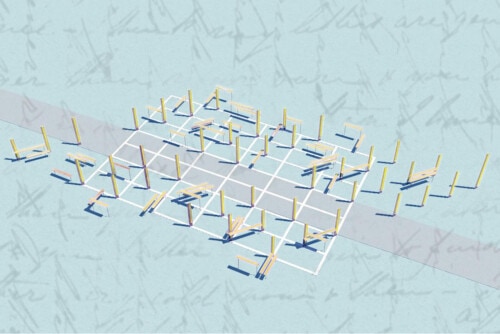Azra Akšamija
Azra Akšamija, PhD is an artist and architectural historian. She is the founding Director of the MIT Future Heritage Lab (FHL) and an Associate Professor in the MIT Program in Art, Culture and Technology (ACT). Her work explores how social life is affected by cultural bias and by the deterioration and destruction of cultural infrastructures within the context of conflict, migration, and forced displacement. She holds graduate degrees in architecture from Technical University Graz (2001) and Princeton University (2004), and a PhD from MIT (2011). Akšamija is the author of two monographs, Mosque Manifesto (Revolver, 2015) and Museum Solidarity Lobby (Revolver, 2019), editor of The Architecture of Coexistence: Building Pluralism (ArchiTangle, 2020), and co-editor of Design to Live: Everyday Inventions from a Refugee Camp with Melina Philippou and Raafat Majzoub (forthcoming, MIT Press, 2021). Her artistic work has been exhibited in leading international venues, including the Generali Foundation Vienna, Liverpool Biennial, Secession Vienna, the Royal Academy of Arts London, Queens Museum of Art in New York, Design Week Festivals in Milan, Istanbul, and Amman, and the Fondazione Giorgio Cini as a part of the 54th Art Biennale in Venice. Her most recent work was shown at the Sharjah Museum of Islamic Civilization (2019), the Aga Khan Museum in Toronto (2020), and the Venice Architecture Biennale (2021). She received the Aga Khan Award for Architecture 2013 for her design in the prayer space of the Islamic Cemetery Altach and was honored by the 2019 Art Prize of the City of Graz. She was awarded the Honorary Doctorate from the Montserrat College of Art (2020).
